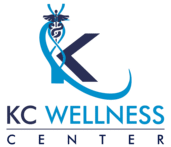February is American Heart Month — a month focused on spreading awareness about heart disease. Did you know heart disease is the number one leading cause of death in the United States? In fact, according to the CDC, about 659,000 people in the United States die from heart disease each year — that’s approximately 1 in every 4 deaths.
Anyone can get heart disease, but according to the Office of Disease Prevention and Health Promotion, you are at higher risk if you:
- Have high cholesterol, high blood pressure or diabetes.
- Smoke tobacco.
- Are overweight or obese.
- Don’t get enough physical activity.
- Don’t eat a healthy diet.
- Are a woman over the age of 55.
- Are a man over the age of 45.
You can avoid serious illness and improve overall health by prioritizing your heart. It’s as simple as thinking about what you are putting into your body and how much daily movement you are regularly getting. Here’s a simple guide on monitoring and improving your heart health all year long.
Physical Activity and Heart Health
Regular physical activity is the first step to improving symptoms of heart disease and overall health. The American Heart Association mentions that it helps lower blood pressure, decrease bad cholesterol, improve blood sugar, reduce stress, control body weight, improve sleep quality, improve memory and reduce the risk of dementia and depression.
Aerobic exercises are beneficial for the heart. Activities such as brisk walking, running, swimming, bicycling and dancing condition the heart to pump blood through the whole body. The goal is to work up to at least 150 minutes of moderate-intensity aerobic exercise or 75 minutes of vigorous-intensity activity spread throughout the week. Stretching and strengthening activities are important to keep your muscles performing and boost your metabolism to get the most out of the aerobic workouts. If you are just getting started, take it slow. Try taking a quick walk a few minutes each week and build up over time. Even just five minutes of movement sporadically throughout the day is proven to have health benefits.
Nourish Your Heart with the Right Nutrients
The three essential nutrients below promote heart health are magnesium, omega-3 fatty acids and fiber. Here are some of their various benefits to your heart and your overall well being:
- Magnesium is an abundant mineral found naturally in the body and in many foods. However, up to 50% of the United States population is deficient. It is necessary for maintaining a steady heartbeat and normal blood pressure. It facilitates the transportation of electrolytes to your heart to help contraction and relaxation. Heart muscle relaxation is half of every heartbeat and measured through diastolic pressure (the bottom number when you take your blood pressure). Systolic pressure measures the amount of pressure exerted when your heart contracts and pumps blood through your arteries. Getting enough magnesium can help keep your heart in rhythm and remain healthy. The recommended amount by the National Institutes of Health Office of Dietary Supplements is 310 to 320 milligrams for adult women and 400 to 420 milligrams for adult men. Magnesium is very common in spinach, nuts, fish, chocolate, seeds and some whole grains.
- Omega-3 fatty acids are associated with lowering triglycerides (a type of fat in the blood), blood pressure and inflammation. It’s also known to lower the risk of heart disease and stroke by reducing plaque in the heart’s arteries and increasing levels of good cholesterol. It can also help regulate heartbeat and lower the risk of arrhythmias. Although there are many benefits to these fatty acids, your body does not make them on its own. You need to get them from your diet through fish, flaxseed oil, chia seeds, walnuts and canola oil. The American Heart Association recommends eating at least two servings a week of fish rich in omega-3s. A serving is 3.5 ounces (100 grams), which is slightly bigger than a checkbook. Oily fish rich in omega-3s include salmon, mackerel, albacore tuna, trout and sardines.
- Fiber also plays a role in preventing heart disease through the ability to lower both blood pressure and cholesterol. It also helps you feel full, which may help you eat less and lose weight as well. Insoluble fiber is in grains, wheat cereals and vegetables like carrots, celery and tomatoes. Soluble fiber sources include barley, oatmeal, beans, nuts and fruits like apples, berries, citrus and pears. Men should aim for 38 grams per day up to age 50, and then the target falls to 30 grams per day. Women should aim for 25 grams per day up to age 50, and then the target drops to 21 grams per day. Overall, most Americans fall short of hitting these goals, but it is an easy nutrient to increase through your foods.
Stick to These Healthy Habits
Diet and exercise are good building blocks for overall wellness, but living a heart-healthy lifestyle are also dependent on these outside factors: smoking, stress and self-care.
- Smoking raises your blood pressure and puts stress on your heart. Over time, a stressed heart will have a more challenging time pumping blood throughout your body. You can lower your risk for heart disease and heart attack by quitting smoking. It is also important to avoid secondhand smoke. You can call 1-800-QUIT-NOW (1-800-784-8669) for free support and set up your plan for stopping.
- Long-term stress can lead to severe health problems. By preventing and managing long-term stress, you can lower your risk for conditions such as heart disease, obesity, high blood pressure and depression. A key strategy for preventing stress before it happens is planning ahead and preparing for stressful events. If you know what it is that causes you stress, develop a plan beforehand on how you can avoid or minimize it. Also, remember to relax, try meditation, get active and eat healthy to combat the negative effects of prolonged stress.
- Check out this blog with ways to embrace self-care, including recipe ideas, online workout classes and mental health tips.
Find Support in the KC Area
You can join the fight to end heart disease and stroke by attending a local event in Kansas City put on by the American Heart Association. Take a look at what is coming up:
What: Kansas City Heart Ball
Where: Kansas City Convention Center
When: Saturday, February 26, 2022
Why: The purpose of this event is to raise critical funds to support the American Heart Association and further its research.
What: Go Red for Women Luncheon
Where: Overland Park Convention Center
When: Friday, May 6, 2022
Why: Educate younger women and women of color that the threat of cardiovascular disease is real and continue to innovate ways to ensure all women are aware of their greatest health risk.
It’s vital to be proactive about your health, especially the function of your heart. By changing some of your everyday habits, you can change the trajectory of your health.
At KC Wellness, we want you to stay healthy not just this American Heart Month but all year long. Call us at 816-214-5276 or click here to schedule an appointment to begin the journey to a healthier you.

Dr. Rahul Kapur, M.D. is a board-certified family medicine physician with a dedicated passion for integrative medicine and a deep knowledge of functional medicine. He was named intern of the year at Wesley Medical Center in Wichita, KS, and has been practicing as a hospitalist for over a decade. He has successfully helped many patients in Kansas City with his specialized IV bags, ketamine therapy, hormone optimization and weight loss therapy methods.


